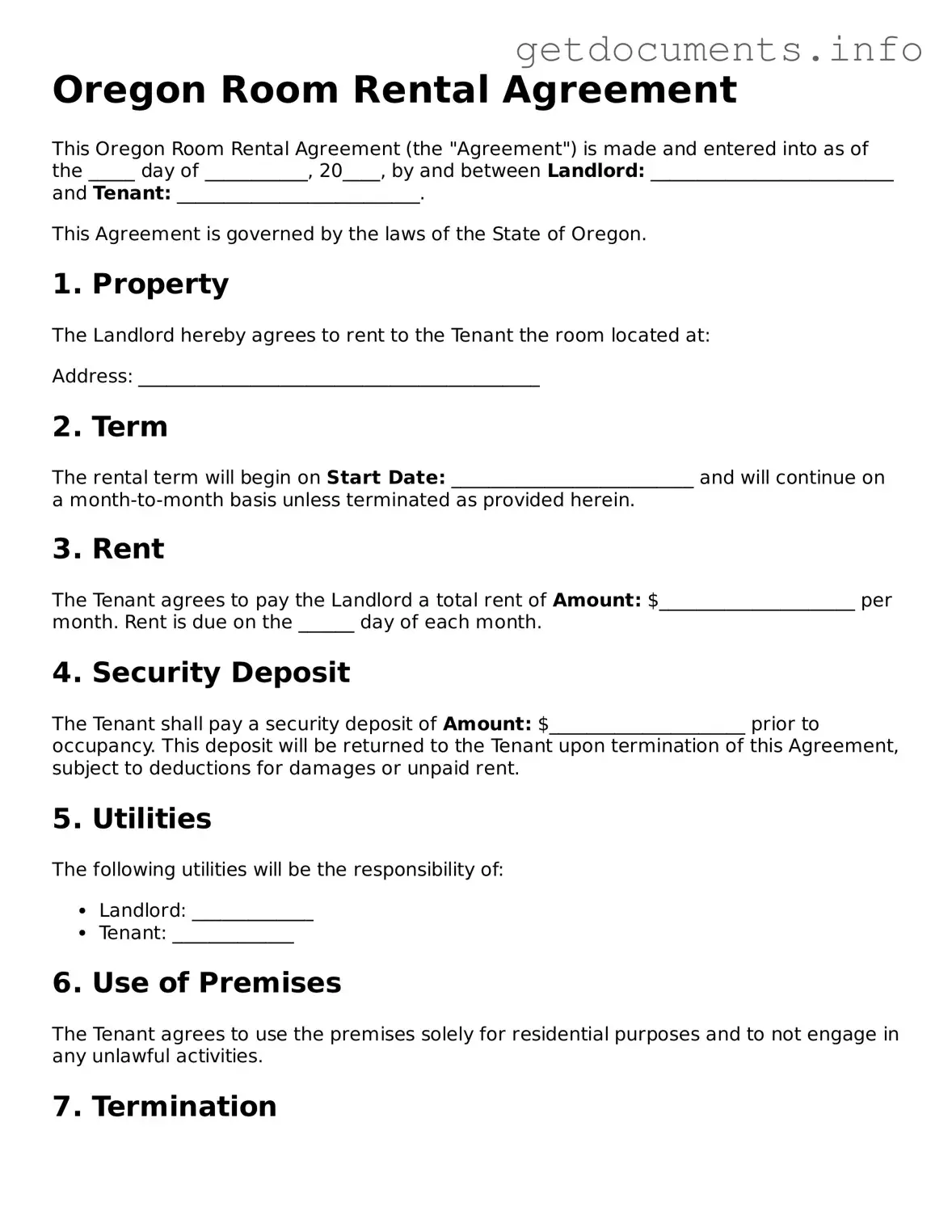Free Room Rental Agreement Template for Oregon
The Oregon Room Rental Agreement is a legal document that outlines the terms and conditions between a landlord and a tenant for renting a room in a residential property. This agreement protects the rights of both parties and ensures clear communication regarding rental terms. To get started on your rental journey, fill out the form by clicking the button below.
Access Room Rental Agreement Editor

Free Room Rental Agreement Template for Oregon
Access Room Rental Agreement Editor
Got places to be? Complete the form fast
Fill out Room Rental Agreement online and avoid printing or scanning.
Access Room Rental Agreement Editor
or
⇩ PDF File
